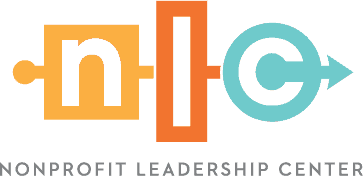How you run your nonprofit organization determines its success, from the employees you hire to the policies and practices you adopt. When it comes to HR policies for nonprofit organizations, there are four human resource practices every nonprofit should have in place to operate ethically and with excellence. Even if your organization already has these HR policies in place, it’s essential to review them regularly to ensure they are up-to-date and effective.
1. Code of Ethics and Conflict of Interest Policies
Nonprofits are particularly at risk for conflicts of interest. What happens if you don’t agree with the business practices of a potential donor? What if a board member operates a business that could help your organization while they profit financially? Nonprofits must take any and every potential conflict of interest seriously. Provide each employee, board member and volunteer with training on your organization’s code of ethics and conflict of interest policies. Inform them about activities or actions that could harm your organization and issues to watch out for. Additionally, establish a process to assess potential conflicts of interest to determine if they are ethical or problematic. This will help your organization and its stakeholders avoid grey areas that could put your nonprofit at risk.
READ NEXT: Reducing Your Nonprofit’s Risk: Trends to Anticipate and How to Tackle Them
2. Staff Promotion and Compensation Policies
Every nonprofit should have a written policy for how its employees receive promotions and compensation that is clear, fair and transparent. Documenting your promotion policies will help you follow clear hiring guidelines when it is time to fill a position, and promotion and compensation HR policies for nonprofits help ensure you are creating a diverse, equitable and inclusive workplace and organizational culture.
3. Employee Manual
Every nonprofit should have an employee manual, a guide that explains the various procedures and expectations your organization has for your staff. The manual should cover technical aspects related to probation and termination, along with elements like paid time off and dress code. Some employee manuals offer details about the organization’s culture and core values. An employee manual establishes consistent organizational policies and ensures no employee receives different treatment than others. Given the increase and necessity of remote working during the past year, adding your policies on remote working and telecommuting is important to include in your manual.
4. Hiring Best Practices
As a nonprofit, you may decide to hold yourself to higher ethical standards than the private sector. Consider how you hire new team members and genuinely assess any unconscious bias you may have. Without realizing it, you could be making assumptions based on candidates’ backgrounds or even their gender, race or name. There are many ways to remove bias in your hiring. You can implement software tools that objectively vet candidates or outsource your hiring to an objective third party. This allows you to hire the best candidates for the job while fostering an equitable and inclusive organization.
READ NEXT: Addressing Unconscious Bias in the Workplace
Regularly Review Your Nonprofit HR Policies
As you develop HR policies for your nonprofit organization, commit to reviewing them annually. Consider hiring an objective third-party expert to review your policies for gaps or potential risk. Strengthening your community through your nonprofit organization starts with having effective human resource policies.
Join the Next Nonprofit HR Roundtable
The Nonprofit Leadership Center’s Nonprofit HR Roundtable convenes human resources leaders at nonprofits to discuss timely topics, problem solve and support each other in a peer-to-peer learning environment.
Discussion topics focus on trends, challenges, and wins that HR leaders are experiencing as they grow organizational capacity and build impactful teams.
This post was adapted from “Which HR Policies for Nonprofit Organizations Really Matter?” by Corbin OneSource
Corban OneSource is a Nonprofit Leadership Center Key Partner. Headquartered in the Tampa Bay area and with clients in 48 states and 13 countries, they have extensive experience in partnering with nonprofits and specialize in working with organizations that have between 15 to 6,000 employees. Their goal is to help nonprofit leaders and their teams focus on their mission instead of the burden of HR paperwork, payroll, benefits administration or compliance. They offer a discount for nonprofits and believe every dollar they save their client goes toward missions that matter most. Learn more about Corban OneSource on their website, or contact them at 1-844-4CORBAN or info@corbanone.com.

